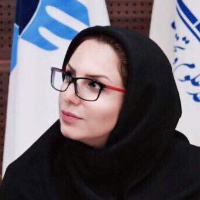Explaining the key concepts of the “Islamic city” in “Madinat Alfadilah” (Virtuous city) theory of Farabi
The present study is based upon the theory of “madinat alfadilah” (virtuous city) to help develop the theoretical foundations related to the concept of the “Islamic city”. This theory is one of the complete theories about the characteristics of the ideal city that “Farabi” has been able to systematize into a “scientific treatise”. “Farabi” is a wise scholar among Muslim thinkers whose theories can still be the solution to today’s problems, due to his scientific comprehensiveness, intellectual order, and independence of thought from the conditions of his time. The freshness of his thought is due to his indebtedness to Islamic sciences and knowledge. In this study, the main research questions are:1. What are the key concepts of Farabi’s “madinat alfadilah” theory?2. How will these concepts play a role in explaining the theoretical foundations and defining the concept of “Islamic city”?There are two approaches in the studies about “urbanization” and “civilization” in Farabi’s view: The first can be considered as “extracting individual concepts from Farabi’s works”, which includes studies that introduce single useful concepts for today’s society according to Farabi’s theories. The second can be called “extracting common concepts from the comparative study of Farabi’s works and other thinkers”, which includes studies that have compared his views with other thinkers who have provided theories in the field of society and the ideal city. The present study fills the gap between these two approaches. It is not merely looking at single concepts, nor is it merely comparing Farabi’s works with other thinkers, based on the view that Farabi’s comprehensive theory can be a comprehensive and all-encompassing basis to define the “concept of the Islamic city”.
This research is a descriptive-analytical study in terms of attitude and addressing the research issue. Bibliographic study tools (with emphasis on referring to primary sources) have been used to review and refine the texts and content of the materials. The research results have been obtained using the qualitative analysis method. According to the research process (based on the research canvas model (Latham 2016)), the first step was to state the problem, explain the goals, and formulate the research questions. The next stage determined the research position by reviewing previous research. Eventually, the theoretical literature was reviewed using an initial theoretical framework. In the analysis and findings section, using the approach of logical analysis, the concepts extracted from Farabi’s idea were presented in three sectors. Also, these concepts were briefly explained, and their relationship with the “concept of the Islamic city” was stated. Finally, secondary concepts were obtained from the basic concepts to form the “theoretical foundation” of the “Islamic city” concept. The relations between all the mentioned concepts with the idea of the utopia were depicted in a diagram. The secondary concepts were extracted by logical analysis and rational inference.
The theory of the “madinat alfadilah”, which is a solid basis for the concept of “Islamic city”, emerges in Hakim Farabi’s thought from a complete and, at the same time, complex process. He deduces this process from the general system of the created world. The starting point of this process is the “monotheism” and greatness of God Almighty. Explaining the hierarchy of beings, from the world of “Meaning” to the world of “Matter”, leads to the turning point of “Man”. The human soul has certain components. Some concepts such as “Wisdom, Will, and Authority” are defined for human beings. Human “bliss” is another turning point in the process. Man needs a “social life” to achieve bliss. Thereby, the concept of the “madinat alfadilah” is born as the background for the formation of social life. After reviewing the sources and analyzing the results, the key concepts of Farabi’s theory include: “bliss”, “comprehensiveness”, “anthropocentric”, “justice”, “global model”, “politics”, “social system”, “management” and “education”. These concepts were systematized in three sectors: “transcendent ideal, path and operational tools”, and their relationships were analyzed.
Based on the logical analysis of the above concepts in order to find their connection with the urban science literature through rational inference, the concepts of “purpose, approach, mechanism, form, context, organization and content” can be explained according to the “Islamic city” concept. The concepts defining the Islamic city can be organized as follows:The transcendent ideal• The “purpose” of the Islamic city is human excellence and his “bliss”.path•The “mechanism” for achieving this goal is “politics”.•The “form” of the Islamic city is to have a defined and specific “social system”.•The “basis” and context of the formation and development of the Islamic city is “a global model”.•The general method or “approach” of the Islamic city is “comprehensiveness, anthropocentric and justice”.Operational tools•The “organization” of the Islamic city can be explained by defining the concept of “management”.•The limits of “education” will determine the “content” of this template.The process of emergence of the concept of “madinat alfadilah”, and the formation process of the theoretical basis of the “Islamic city” concept using key concepts of the theory are shown in a diagram.
- حق عضویت دریافتی صرف حمایت از نشریات عضو و نگهداری، تکمیل و توسعه مگیران میشود.
- پرداخت حق اشتراک و دانلود مقالات اجازه بازنشر آن در سایر رسانههای چاپی و دیجیتال را به کاربر نمیدهد.



